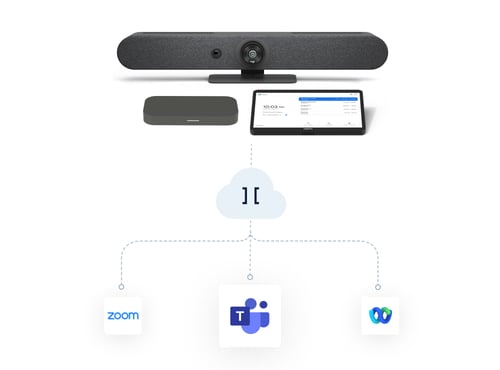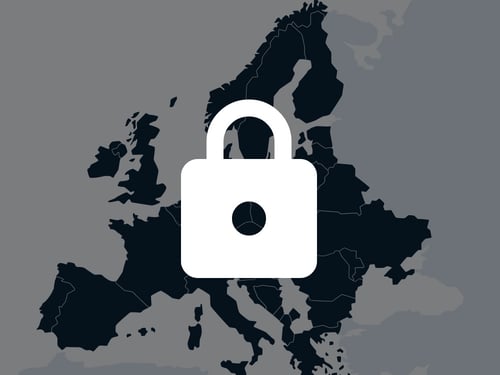Defense & security organizations cannot use standard video conferencing services for their confidential communication. Pexip, certified by Spain’s National Cryptologic Center (CCN), is among the solutions that enable them to do so safely.
The Russian invasion of Ukraine has been a stark reminder that war in Europe is not a thing of the past. In recent decades, significant cuts in defense and security investments have weakened the armed forces of Western countries, reducing their deterrence capabilities. Now many nations find themselves in a race against time to reverse this trend.
Spain is an example of a country that has deprioritized defense spending. For years, it has been one of NATO’s lowest investors in defense as a percentage of its GDP, consistently ranking in the bottom three. The latest NATO projections for 2024 place Spain at the very bottom in defense investment. In response, the Spanish government is now accelerating efforts to meet the 2% GDP target set at the 2014 Cardiff Summit.
Against this backdrop, the Liberdefensa Forum took place on December 3, 2024, an event organized by the Digital Freedom Group in collaboration with the Spanish Engineering Institute. The forum brought together experts and officials from government and industry to discuss the importance of strengthening Spain’s defense sector in light of Europe's changing security landscape.
At the event, Libertad Digital spoke with Valentín Martín, Pexip’s Director for Southern Europe, whose company was one of the event sponsors. Here’s their conversation:
Q&A between Libertad Digital and Valentín Martín (VM) of Pexip.
What is Pexip? Where does it come from and what role does it play in the market today?
VM: Pexip provides a secure and interoperable video conferencing infrastructure that works seamlessly across any meeting room system, mobile device, or collaboration platform. Founded in 2012, Pexip has been dedicated to developing fully virtualized and distributed video technology that can be deployed flexibly in self-hosted or cloud environments while ensuring security.
In a world where video communication is essential for both governments and private enterprises, our mission is to give organizations full control over their video communications and data while ensuring interoperability across all devices, regardless of the manufacturer.
As a Norwegian company with a strong international presence, what are your key focus areas and clients in Spain?
VM: We focus on institutions and businesses that prioritize the security and privacy of communications. Our typical clients include public sector organizations, particularly in military, defense, security, and intelligence sectors. Additionally, we serve large private enterprises in finance, healthcare, energy, legal, and industrial sectors—industries that must safeguard sensitive data, intellectual property, and comply with stringent privacy regulations.
Your sector requires significant investment in R&D. What areas of innovation are you currently working on?
VM: We are integrating Artificial Intelligence (AI) into our platform, allowing AI-powered security, user authentication, and meeting management functions to operate within a fully private environment. This enables organizations to customize AI models within a dedicated, secure space tailored to their needs.
Additionally, we continue to enhance our platform’s integration capabilities through APIs and SDKs, making it easier to embed video into management processes that traditionally lacked this functionality. Whether for citizen services, emergency response, patient care, or even tactical-level operations, our goal is to enable rapid scaling—supporting tens or even hundreds of thousands of users—while also allowing secure, tactical deployments within hours.
You participated in the first Liberdefensa Forum of the Digital Freedom Group. What was your key message at this event?
VM: Our main message was that security cannot be an afterthought—it must be embedded into a system’s DNA from the very beginning. This is precisely how we designed Pexip’s Infinity platform: security is at the core of our software, not just an added feature.
What is Pexip’s growth strategy in Spain?
VM: Our business model is to reach the market exclusively through channels. We are looking for strategic integrators for sectors where Pexip delivers the most value. We provide them with technical training and support to ensure successful deployments and ongoing assistance for our clients.
In security and defense, certifications are critical. How are you positioned in this regard?
VM: In Spain, we hold the LINCE certification, making us the only video conferencing solution listed in the CPSTIC Product Catalog of the National Cryptologic Center (CCN).
Internationally, our most relevant certifications include:
- DoDIN certification from the U.S. Department of Defense (DISA)
- FIPS 140-3 from the U.S. National Institute of Standards and Technology (NIST)
- CSPN certification from ANSSI, the French cybersecurity authority
We also hold certifications for the healthcare sector and comply with EU regulations, ensuring adherence to EU-GDPR and NIS2 directives.
Our clients require solutions that meet their regulatory obligations and provide well-documented security procedures. That’s why Pexip invests heavily in maintaining these certifications and ensuring compliance across all industries.
- Defense
- Meet & collaborate securely
- Secure Meetings





.png?width=500&name=Access-control-ebook-thumbnail%20(1).png)